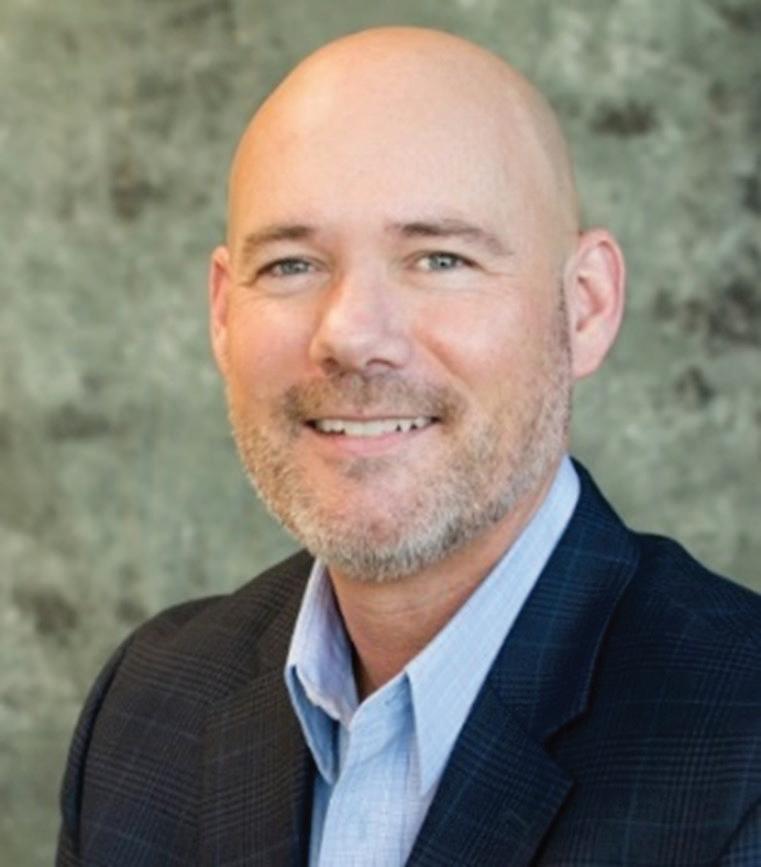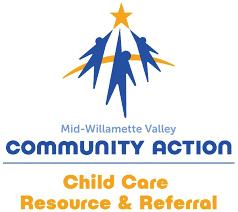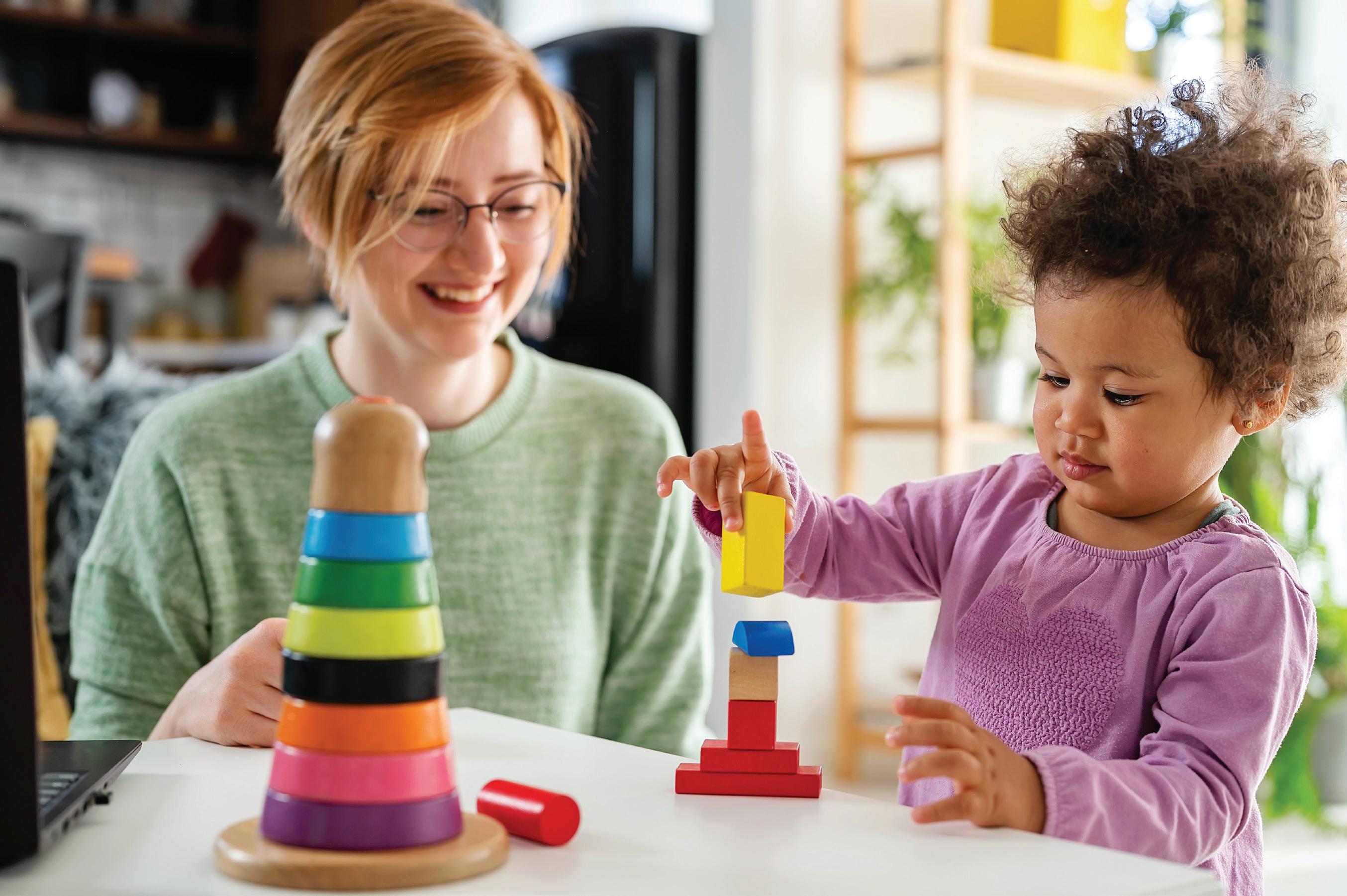

Community Prevention & Wellness (CPW) Fund










Community Prevention & Wellness (CPW) Fund







Yamhill Community Care (YCCO) formed the CPW Fund to enhance the health and wellness of our community by focusing on evidence-based prevention programs. By investing and partnering with local agencies in our community, we can achieve community-wide well-being for generations to come.
YCCO is a nonprofit coordinated care organization dedicated to managing the healthcare for Medicaid members, covered under the Oregon Health Plan, in Yamhill County, as well as parts of Washington and Polk Counties. Beyond healthcare, YCCO is also the region’s Early Learning Hub, supporting families and children with essential resources and programs for early childhood development.


Our Vision
A unified healthy community that celebrates physical, mental, emotional, spiritual, and social well-being.
Our Mission
Working together to improve the quality of life and health of the Communities we serve by coordinating effective care.

Jordan Robinson (Board Chair) – District Director, Lutheran Community Services
Jeff White (Vice Chair) – Co-Chair, Community Advisory Council
Gil Muñoz (Secretary/Treasurer) – CEO, Virginia Garcia Memorial Health Center
Chris Brooker – Chief Financial Officer, Willamette Valley Medical Center
Rachel Flores – Development Director, Henderson House
Dennis Gray – Administrator, Physicians Medical Center
Andrew Haslam – Chief Administrative Office, Providence Newberg Medical Center
Suey Linzmeier – Executive Director, Head Start of Yamhill County
Rony Lucas – Clinical Mental Health Counselor, Life Counseling
Lindsey Manfrin, DNP, RN – Director, Yamhill County Health and Human Services
Raji Mathew Samuel, DDS – Capitol Dental Care
Commissioner Mary Starrett – Yamhill County Board of Commissioners
Vickie Ybarguen – Executive Director, Housing Authority of Yamhill County
Lindsey Manfrin, DNP, RN (Chair) – Director, Yamhill County Health and Human Services
Jordan Robinson (Vice Chair) – District Director, Lutheran Community Services
Rony Lucas – Clinical Mental Health Counselor, Life Counseling
Russell Mark – President & CEO/Executive Director, Juliette’s House
Joe Morelock, D.Ed. – Superintendent of Willamette Education Service District
Carla Munns – Director of Advocacy, Oasis Oregon/Project Oasis
Raji Mathew Samuel, DDS – Capitol Dental Care
Shannon Buckmaster – Wellness Fund Development Director
Danielle Russell – Grant Program Manager


Seamus McCarthy President & CEO


Shannon Buckmaster Wellness Fund Development Director
Since 2012, Yamhill Community Care (YCCO) has been a community asset that drives quality improvement and reinvestment for healthcare and early childhood education. Often, we are so immersed in the work we forget to step back and reflect on its impact. This report is a snapshot of the CPW Fund’s dedication, collaboration, and initiatives that advanced our mission of fostering a healthier and more connected community.
As we reflect on our achievements, I want to express my gratitude to our dedicated team and community partners. YCCO will continue to explore innovative ways to address the evolving needs of our community, foster connections, and make a lasting difference.

As a native Oregonian and former foster child, the work we do through the CPW Fund at Yamhill Community Care is personally and deeply meaningful. Daily, I’m inspired by my awareness that we are improving healthcare generally and impacting individual family members and children. Each life impacted by this work is a real person and not simply a statistic. I’m regularly humbled by the impact our programs and funding have for children, families, and our community. Our growing state and national presence in advocacy and policy work increases our commitment to innovation, persistence, empathy, and systemic solutions, challenging us to high levels of accountability and responsiveness. Thank you for engaging with our mission and, hopefully, partnering with us to both maintain and expand our programs. Together, we’re empowering families to thrive.
In 2015, YCCO’s Board of Directors formed the CPW Fund to enhance the health and wellness of our community by focusing on evidence-based prevention programs. The fund’s work drives upstream public health initiatives in the social determinants of health and equity (SDOH-E), grounded in prevention science, and identified by community partners. In other words, innovative solutions to public health and community challenges. The CPW Fund is directed by members of the CPW Committee and is responsive to the YCCO Board of Directors and the Community Advisory Council. To date, the CPW Fund has developed and supported community projects that have demonstrated material impact in our communities and set national standards for holistic prevention strategies. By investing and partnering with local agencies in our community, we can achieve community-wide well-being for generations to come. The CPW Fund aims to achieve sustainable growth by cultivating diversified funding opportunities and partnerships, expanding community capacity-building strategies, and establishing a local, state, and national presence as a catalyst for comprehensive primary prevention work.


2015: YCCO Board creates the Community Prevention & Wellness (CPW) Committee and contributes $1.5 million as seed capital
2016: First round of community investments including Good Behavior Game
2019: RFP requirement to incorporate Community Health Improvement Plan objective; preference for addressing health disparities
2019: Funds contributed by partner organizations
2021: YCCO Board approves the CPW Fund Sustainability Plan
2022: Georgia Health Policy Center visits CPW Fund offices in Oregon for strategic planning
2023: The Fund awards $720,034 in new projects and renews $112,970 for existing projects
2023: YCCO is selected as one of five designated pilot sites across Oregon chosen by the Oregon Health and Education Collaborative to collaborate on developing a Child Success Model with emphasis on the first 1,000 days of a child’s development; CPW funds are invested to support the project
2023: The CPW Fund partners with the Childcare Workforce Taskforce
2024: The Wellness Fund Development Director is appointed to the Whole Child Health Alliance through Nemours Institute

We are proud to be featured as a case study for the Nemours Whole Child Health Alliance! Our Service Integration Teams, Community Health Hub, FamilyCore, and Child Success Model were highlighted. YCCO is leading the way in meeting children’s needs and fostering healthy relationships with caregivers.
“The model for a CCO is that it is formed at the community level, owned by the community, and run by the community.” – Shannon Buckmaster, MDiv, PhD Wellness Fund Development Director, Yamhill Community Care.

The CPW Fund is focused on the root causes of health inequities. The Fund’s core mission is to generate long-term health improvements through evidence-based health initiatives based on preventive science; this includes supporting Oregon Health Authority’s goal of eliminating health inequities by 2030. To achieve these outcomes, the CPW Fund develops and directs resources toward capital projects that address structural inequities in the various SDOH-E. The CPW Fund has identified several areas for future funding, including family and peer support programs, early childhood and school-based mental and behavioral health programs, Tribal support, government affairs advocacy, workforce development, suicide prevention, housing, maternal health, wealth-building, food security, and nutrition.
The Fund also prioritizes strategic investments in cultural and racial equity among communities facing historical and systemic marginalization, such as people with disabilities, communities of color, geographically isolated residents, and immigrant communities. Partnerships with local community-based organizations, healthcare providers, public agencies, school districts, and emergency service providers allow us to identify and address the complex challenges facing our communities. State and national partnerships empower us to uplift our work, influencing holistic primary prevention strategies for communities across Oregon and the U.S.
Family Well-being Council

Early Learning Hub Strategic Plan
Housing
Community Health Improvement Plan Priorities
Responder Life
Maternal Well-being Community Engagement
Yamhill County Health & Human Services Contracted Support PAX Good Behavior Game
Early Childhood & Education Suicide Prevention
Family Support Programs Government Affairs Advocacy
Food Security & Nutrition
Workforce Development
Wealth-building Tribal Support
FamilyCore, YCCO’s Universal Home Visiting program
The successful creation of the [CPW] Fund was largely due to the extensive trust and partnership established among committee members and within the larger stakeholder group – and especially between key entities such as schools, YCCO, and the local public health department.
– Georgia Health Policy Center (2019)




Among the various needs of our community, Yamhill County’s childcare desert has been continuously illuminated by local assessments and exacerbated by the COVID-19 pandemic. In 2021, YCCO launched the Childcare Workforce Taskforce, convening more than a dozen local early learning educators, childcare providers, school district leaders and other community organizations to identify and address the challenges associated with Yamhill County’s childcare workforce.
The Taskforce identified three main childcare workforce challenges:
1. Capacity and Affordability: Yamhill County is a childcare desert. For Yamhill County’s more than 6,500 children, there are only 1,391 childcare spaces, or 1 space per nearly 5 children. Of the few available spots, most are unaffordable for Yamhill County families, and few publicly funded childcare spots are available.
2. Workforce: Low wages, high turnover, and lack of employee and employer support plague the current childcare workforce landscape. The depletion of the county’s workforce was only exacerbated by the pandemic.
3. Inequities: For families who face systemic barriers—persistent poverty; mental, physical, cognitive, or other disabilities; language and/or cultural barriers; rural geographies—the effects of the childcare desert are even more severe.

In 2023, the taskforce’s final report outlined two specific and urgent program recommendations to increase the number of high-quality, low-ratio, affordable childcare slots, re-establish a network of childcare service providers in Yamhill County, and provide transportation support and culturally appropriate childcare service providers. The recommendations also intend to supplement and expand upon childcare projects and businesses already in operation.
To address these issues, the taskforce recommended:
(1) Establish paid training, licensing, mentorship, and placement programs with local community partners, with the goal of adding at least 30 new childcare providers in the first three years.
(2) Invest in new childcare provider businesses through free business coaching and childcare management software, capital funding, and ongoing support in state and local regulatory navigation. These recommendations will rebuild the local early care and education workforce and invest in new childcare business start-ups to increase the availability of high-quality, low-ratio, culturally responsive, and affordable childcare spaces. The programs will engage low-income, culturally diverse, historically marginalized, and geographically isolated students by removing economic barriers and providing culturally responsive programming and transportation support. The recommendations impact at least one of the core childcare challenges identified above, can be implemented with the available resources and community partners, and demonstrate a measurable impact within a three-year period.
In February of 2024, YCCO’s CPW Committee voted to approve $733,333 in initial funding for the program’s work-ready projects. A state-designated program called Childcare Resource and Referral (CCR&R) was contracted to oversee the first phase, including the identification of childcare provider partners for mentorship and placement programs and the recruitment of apprentices for the pre-apprenticeship and apprenticeship programs.



Thus far, CCR&R has:
Childcare Resource and Referral (CCR&R) is a state-designated program that offers professional development, technical assistance, and a range of community resources for local childcare providers. CCR&R is a key partner in advancing the recommendations of the Childcare Workforce Taskforce.
• Engaged new childcare providers for the apprenticeship program, with particular emphasis on engaging Spanish-speaking providers
• Coordinated visits with more than 40 local childcare providers to share information about the workforce project and solicit interest in the pre-apprenticeship and apprenticeship programs, childcare spot creation support, and workforce placement
• Developed processes for apprentice recruitment, program applications, candidate interviews and selection, site placement, curriculum, and evaluation metrics
• Completed 15 outlines to structure the 10 required Cohort and Community of Practice sessions
• Gathered local emergency resources and best practices from the University of Oregon’s Business Impact Seminar and business networking groups, building code information, and permitting guidance to provide new childcare providers with accessible pertinent information
Currently, CCR&R is working to identify host childcare providers for apprenticeships, conducting orientation with mentor teachers, interviewing and selecting apprentices, conducting apprentice orientation, and registering pre-apprentices for classes beginning this September. The CPW Fund has provided administrative assistance and galvanized political and financial support to advance this program. The Fund is eager to continue supporting this critical work.




In Oregon and across the county there are workforce shortages in almost every field. Research has shown that one of the most cited barriers to entering the workforce is the lack of available quality childcare. Therefore, unless we can stabilize childcare, we will not be able to stabilize the workforce. In response the Willamette Education Service District (WESD) is proposing to add a high-skill, high-wage, and in-demand Program of Study (POS) at the Willamette Career Academy to prepare 11th and 12th grade students to become Childcare Providers or Lead Teachers in their communities.

WESD is a multi-faceted agency with a workforce of over 450 highly skilled and caring professionals serving 21 Oregon school districts—an Early Learning and K-12 student population of more than 100,000 youth. WESD provides about 61 services related to Special Education, Technology, School Improvement, and Administrative Services, primarily in areas where school districts alone would not be able to adequately provide. Originally organized in 1853 as the Marion County School Office, WESD has over 150 years of providing support services to Oregon schools and has evolved over the decades to meet the ever-changing needs in education.

The CPW Fund’s collaboration with WESD stems from years of shared community work and partnership. YCCO and WESD have supported classroom-based teacher training in Social-Emotional Learning (SEL) programs (evidence-based, K-12 preventive behavioral support programs designed to teach self-regulation and nurture a positive learning and home environment). Together, our partnership has overseen the implementation of SEL programs in every WESD school district in Yamhill County. WESD and YCCO also partner with local school districts to conduct referrals for preventive and intervention services through the FamilyCore Universal Home Visiting, Preschool Promise, early childcare, literacy, and Kindergarten Readiness programs.

WESD’s proposed POS is focused on developing the pathway and curriculum for the Early Childhood Education (ECE) program with the goal of exiting the students from the program prepared to enter the workforce or transition to a two- or four-year degree program. Oregon utilizes the Oregon Registry Online (ORO) as the mechanism for certification of early childhood education providers. The ORO system allows individuals to become qualified through various pathways including coursework and training. The program would allow students to exit at an ORO Step 8 which would qualify them as a childcare provider or to teach in any public ECE program. For students who wish to continue their education, the project will include collaboration with local community colleges and universities to ensure seamless credit transfer.

In September 2024, WESD and the CPW Fund created an agreement in support of joint fundraising to support curriculum development and instructor licensing for the proposed POS. This program is necessary to expand Career and Technical Education (CTE) programs for 11th and 12th graders and addresses the crucial need for childcare spaces in Oregon. The increased capacity of professionally trained, local childcare providers is necessary for early childhood and long-term health outcomes. If awarded, YCCO will navigate community partner connections for WESD by identifying and partnering in future fundraising activities for program implementation, expansion, and sustainability.
The new program of study POS will equip students with the skills, experience, and credentials to enter an in-demand, high-paying, and sustainable career. Moreover, it will remove barriers for low-income students. Partners for this project include Portland Community College, Western Oregon University, Child Care Resource and Referral, the Oregon Department of Education, the Oregon Department of Early Learning and Care, and the local school districts. These partners will be critical in the designing of the program so that coursework seamlessly transfers and students are prepared to enter the workforce.





In 2023, YCCO launched a Joint Funding Request for Proposals (RFP) for community grants. This fund of up to $2.5 million combines five funding streams for investments in SDOH-E, economic stability, neighborhood and built environment, education, and social and community health. Despite the funding streams being combined, the CPW Fund retains its funding priorities. The innovative, single-entry funding model was designed to provide more equitable access for community organizations to funding opportunities without being burdened by the sometimes-complicated process of identifying, interpreting, and applying to appropriate grant opportunities.
The joint fund process reflects YCCO and the CPW Fund’s commitment to creating equity and community capacity-building by placing the responsibility of comprehending, interpreting, and identifying the most appropriate funding sources for each project on YCCO staff members. To this end, YCCO and CPW staff also offer comprehensive technical assistance during an initial virtual webinar, available in English and Spanish, and additional one-on-one support with YCCO staff and the CPW Wellness Fund Development Director. To ensure transparency, community support, and engagement, the Joint Fund actively recruits community members to participate in the review and approval process for proposed projects. To ensure the funded projects have a demonstrated impact, the Fund requires reporting of clearly defined measurables and provides technical assistance to organizations to collect and analyze this data.

In the 2024 funding cycle, the CPW Fund awarded $1,055,510 in grants to local nutrition, child abuse prevention education, and social and emotional learning (SEL) programs.
YCCO’s Joint Fund design has also served as a model at the local, regional, and state levels as an equitable strategy for community funding and capacity building. In September of 2023, YCCO presented the pilot project at an Oregon Health Authority conference and in June of 2024 at the Oregon Rural Health Forum. The CPW Fund will continue diversifying funding sources to increase the Fund’s impact within the YCCO service area.

Annual RFP Grantees





Juliette’s House (child abuse prevention and education)
Unidos Bridging Community (maternal health and nutrition) $182,237 $262,235 $260,360 $93,600 $257,078
Newberg School District (social & emotional learning)
Yamhill County Veggie Rx (nutrition)
McMinnville School District (social & emotional learning)



The CPW Fund supports YCCO’s family support programs to meet the diverse needs of local families.
In 2015, YCCO launched FamilyCore, a community services network that provides home visitors, bicultural doulas, and peer support specialists for families with children, prenatal to age five. FamilyCore connects parents with a broad support system to meet challenges head-on and to nurture strong families. Through a network of community partners, FamilyCore provides local families with a direct method to access a plethora of resources from healthcare and dental services to food and nutrition, home visiting, early learning and childcare, parenting support, birth and postpartum resources, housing, rental, and utility assistance.


FamilyCore’s network of community partners includes Yamhill County Public Health, Head Start of Yamhill County, Head Start of Grand Ronde, A Family Place Relief Nursery, Oregon Child Development Coalition, Provoking Hope, Willamette Education Service District, and Yamhill County Community Doulas.
In 2023, the FamilyCore program provided services to 416 families in Yamhill County, throughout 13 municipalities and the tribal community of Grand Ronde. FamilyCore partners conducted 38,305 home visits, including 17,559 virtual home visits.
Program participants were 58% White, 22% Hispanic or Latino/Latinx, 13% American Indian or Alaskan Native, and 3% Native Hawaiian or Pacific Islander. Services were provided to community members facing housing instability, recent parental incarceration, concerns about violence, childhood milestones, food insecurity, and more.

The CPW Fund also furthers its mission by supporting nutrition programs. YCCO’s nutrition programs ensure that community members, regardless of economic status, have equitable access to affordable, nutritious food—one of the SDOH-E. Given the predominantly rural nature of the YCCO service area, many community members live in food deserts or struggle with food insecurity. The CPW Fund supports nutrition access programs in YCCO communities, including support for local food pantries and FamilyCore nutrition support services.


In 2024, the CPW Fund Committee provided $93,600 in support to the Yamhill County Veggie Rx program; an evidence-based primary prevention program providing nutritional and culturally appropriate meals to pregnant people. The program supports long-term health outcomes for children.
The CPW Fund also provided support in the amount of $187,237 to Unidos Bridging Community to implement a Spanish-language nutrition program for Hispanic or Latino/Latinx immigrant and agricultural working families and individuals.
The program is conducted with Oregon State University and Yamhill County bicultural instructors and focuses on preventing heart disease and diabetes. Education in nutrition, healthy eating, and physical activity is also provided, based on the U.S. Dietary Guidelines for Americans. The CPW Fund will continue to support local nutrition and food access programs to advance long-term health outcomes for our communities, especially for local Spanish-speaking and Tribal communities and communities facing significant socioeconomic and geographic disparities.



The Oregon Health and Education Collaborative (OHEC) works with partners in healthcare, education, human services, and community-based organizations.
The mission of OHEC is to disrupt intergenerational cycles of trauma and adverse childhood experiences by supporting collaboration among partners that will achieve positive outcomes in health and education for all children, beginning with the first 1,000 days of life from conception.
With a return rate of 13% for investments from pregnancy to 1,000 days, the CPW Committee decided to partner with OHEC both as a significant seed funder for the initiative and as one of five statewide pilot sites committed to developing a Child Success Model (CSM) specific to our region. YCCO completed its CSM in August 2024, a robust plan that includes targeted investments in perinatal care and case management, home visiting, parent success planning at moderate- and high-risk levels, health screenings, and increasing bilingual and culturally responsive staffing and outreach resources. The ultimate goal is to create a statewide CSM as a basis for Oregon policy reform through legislative action.






The CPW Fund has been an avid partner in supporting the implementation of SEL programs—a crucial tool for K-12 schools in our service area. Developed by Dr. Anthony Biglan, the PAX Good Behavior Game (GBG) is an evidence-based, preventive behavioral support program for K-8 students, designed to teach self-regulation, self-management, and self-control to nurture a positive learning environment. The GBG gives students a role in governing themselves and teaching children to learn to cooperate and concentrate. Small teams of students earn simple rewards, such as a chance to dance or make funny noises after they have worked together successfully for short periods.
In 2016, the CPW Committee piloted the program in three Yamhill County schools covering 18 classrooms and approximately 350 students. At the end of the school year, Linfield University psychology students conducted focus groups to evaluate the program’s impact. Focus group data demonstrated an overall improvement in the classroom environment and workforce retention for educators. In 2018, the program expanded to three additional school districts, Amity, Dayton, and Newberg, training 188 staff and implementing the programs in 121 classrooms. The program continues to be implemented in schools across Yamhill County.

Thus far, participating schools have recorded a significant improvement in student attendance, fewer classroom disruptions and behavior referrals, and improved educator well-being. Research indicates that participating students will have fewer children requiring special education, engaging in disruptive or violent outbursts, engaging in drug or alcohol use, attempting suicide, or having trouble graduating high school and attending college. The PAX program has also saved an estimated $218,000 in staff time and costs associated with disciplinary activity in the first three school districts to implement the program. The benefits of this program will have a long-term impact on our youth, families, educators, and communities.
RULER is an evidence-based SEL program developed by the Yale Center for Emotional Intelligence that teaches social and emotional regulation for students of all ages to promote a healthier, more equitable and compassionate learning environment and society. The K-12 classroom-based program supports school communities in understanding the value of emotions, building the skills of emotional intelligence, and maintaining positive school climates. RULER engages educators, school professionals, students, and families to adopt an enhanced mentality that “emotions matter”—a shared language and practice of social and emotional health, and healthier school and home environments.


In 2023, the McMinnville School District reported improvements in attendance for the first quarter of the 2023 – 2024 school year from 67.5% to 76.5%—a 9% increase in attendance from the previous school year. The RULER program has also demonstrated increased educator effectiveness and retention, improved student attendance, engagement, academic performance, and increased communal and individual well-being.
Other SEL programs, such as the award-winning Sources of Strength program, the Multi-Tiered System of Supports, the Collaborative Problem-Solving Program, the Interconnected Systems Framework, Thought Exchange, and 321 Insight have been identified by local school districts. The benefits of SEL programs extend not only to the students who will carry with them the social and emotional tools necessary for a successful life, but also to their families, educators, and communities. The CPW Fund supports the expansion of PAX and RULER SEL programs throughout the YCCO service area and provides ongoing training and support to current participating schools. Additionally, the Fund continues to partner with local universities, including George Fox University and Linfield University to facilitate ongoing evaluation of the programs.





The CPW Fund also supports the Responder Life program, which provides vital peer support to the Yamhill Fire Department, the Yamhill Police Department, Yamhill 911, and the Newberg Police Department. Through Responder Life, members of these agencies have access to integrated mental healthcare, chaplaincy, training, and administrative guidance. Responder Life provides consultation on any necessary updates to handbooks, policies, guidelines, or resources; facilitates care for agency team members; delivers trainings; and provides ongoing peer support and consultation. Recently, Responder Life has hired a chaplain to develop the necessary resources and assist local first responders following critical incidents. This chaplain extends their services to various departments including the Newberg/Dundee Police Department, Dundee Fire Department, Yamhill Sheriff’s Office, McMinnville Police Department, and McMinnville Fire Department.




The CPW Fund continues to identify and explore opportunities to increase and sustain funding from our public, private, and institutional partners to support current and future projects.
Public funds: Local, state, and federal funds may be allocated for housing, behavioral and mental health support, and workforce development.
Private funds: These are made by corporations and private foundations that are mostly nonprofits who are interested in a specific area of community benefit.
Braiding and matching funds: These arrangements may help leverage additional funds for collective impact.
Research institutions and university investments: In-kind, matching, or independent grant opportunities; partnerships with universities, particularly those with programs that focus on SDOH-E, primary prevention, or healthcare workforce development.